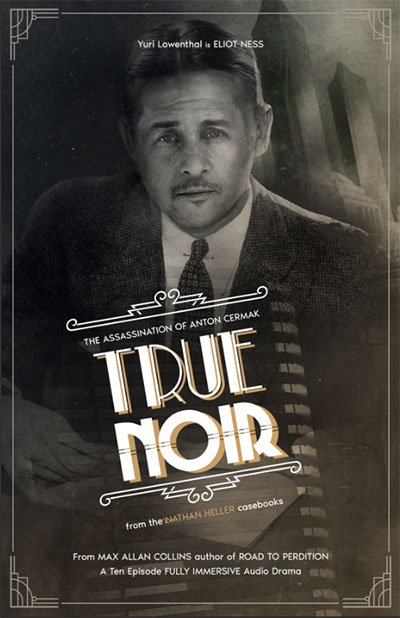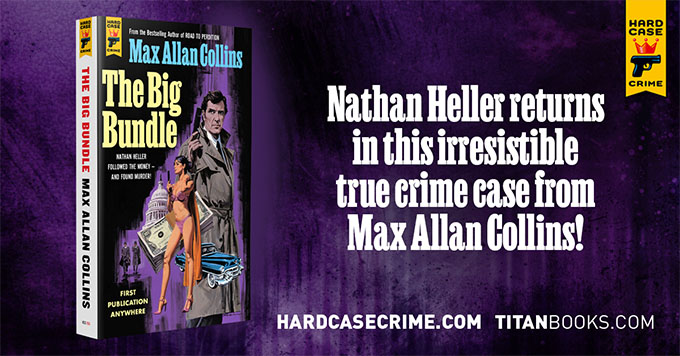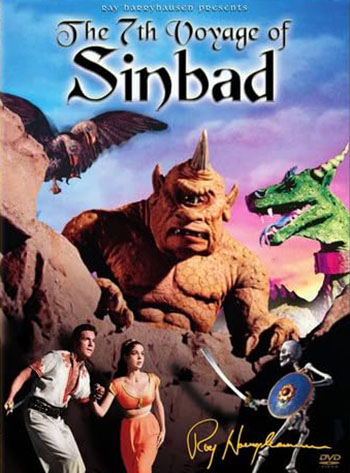The Kickstarter crowd-funding campaign for my new project may go live as early as tomorrow (as you read this – it’s tentatively set for May 1). This is to support True Noir: The Nathan Heller Casebooks, a fully immersive audio production based on the first book in the series, True Detective. I am writing all ten scripts myself.

My talented director, Robert Meyer Burnett, is assembling a great cast, led by Todd Stashwick of Picard and the 12 Monkeys TV series (and much more). Impressive names are being sought, a number of whom have already said yes, but these will be parceled out to the public as the crowd-funding campaign continues.
Here again is a link to the 12-minute proof-of-concept audio we put together.
It’s based on the first chapter of Stolen Away, which is not the book we’re adapting but was chosen for its combination of establishing Heller in an action situation.
It’s truly odd returning to True Detective (no relation to the HBO show that came after) for the first time in over forty years (!). Also the form is one that has special challenges. The story has to be told in completely audio terms. Its length ultimately will be three times longer than a film adaptation, but still substantially shorter than the 100,000-word novel I’m adapting.
I do find myself pleased to tweak scenes and make them better than the first time around (in 1981!) but at the same time I’m trying to honor the work of the young writer who wrote the novel so long ago.
Fortunately, as some of you know, I wrote a number episodes of the web series Fangoria’s Dreadtime Stories, so I’ve written radio-style scripts before and feel I’m fairly adept at it. But nothing as long-form as this, a script of ten episodes that will ultimately add up to over 300 manuscript pages.
I have high hopes for the quality of what we’ll produce – and for its reaction among listeners. As the Heller series winds its way toward its last entry (which I am contracted to write for Hard Case Crime this year), I am happy to be revisiting where the saga began. And it may open the door to more adaptations, and bring more attention to Heller from new readers and perhaps even the TV and movie world.
There will be a strong physical media component. We’re planning a Blu-ray that will contain the entire audio drama, the production of which will be elaborate and truly a movie for the ears; but also an hour-long interview by Rob Burnett with yours truly, footage shot in Chicago of star Todd Stashwick, and much more (my longtime collaborator Phil Dingeldein shot this footage). There may even be a vinyl version!
You know what my greatest strength is as a purveyor of long elaborate lies? (AKA novelist.) It’s how well I take criticism.
Insert hysterical laughter here.
I have no idea what it is in my psychological make-up that makes me react so badly to criticism. I have a ridiculous amount of self-confidence, but the inflated balloon of my ego is easily pricked. Especially by pricks.
Recently I got dinged at Black Gate, an interesting genre-oriented website where this lovely review of (yup) True Detective appeared in 2018.
But someone named Thomas Parker (the word “Editor” is next to his name but he’s not listed among the Black Gate staff) criticized Charles Ardai and Hard Case Crime for using their line as “a Max Allan Collins manuscript dump.”
This gratuitous cruelty appealed to my poor judgment and I replied, but Black Gate did not post that reply. I never understand the reluctance of websites and publications to allow authors – even those like me with poor judgment – to respond to this kind of thing, when they allow people like Parker to prattle on in the first place.
My response was perhaps less-ill-judged than usual because I was defending a great publisher, and editor, who have almost single-handedly kept 1950s-style noir novels alive, both through reprints and books by contemporary authors.

Anyway, here’s what I wrote that did not appear:
I might add to this that I have not foisted any unpublished manuscripts from my drawer for HCC to publish or even consider. Nothing of that kind exists. The only unpublished book from my drawer that I did allow to be published was the first Nolan novel (sans the Jon character), Mourn the Living, which I let be serialized in a fan magazine back in the ‘80s. Later several publishers asked to collect the serialized novel into a book and I allowed that. And when Charles Ardai wanted to reprint all of the Nolan novels as two-fers, when we got to Spree (a rather overlong entry and, at the time I wrote it, another attempt to end a series), he asked to include Mourn in that volume as a bonus.
Look. I understand writers need to learn to take criticism well (I’m still working on that). And I have learned from critical reviews from time to time when the reviewer pointed out some weakness of mine I hadn’t seen or anyway been able to overcome; that’s called constructive criticism, and I may not love getting it at the time, but it can – and often does – pay off.
Sometimes readers, reviewers, just don’t like your stuff and that’s their privilege, obviously. I know that my propensity for describing characters and their clothing in some detail alienates some readers/reviewers. But I’ve explained why I do that, here, any number of times (it has to do with characterization). I’ve been a professional novelist since 1971 and that’s always been the technique I’ve used. That doesn’t make it right, but it does indicate a choice as opposed to some blind flaw. And I am still trying to exercise that approach in a more economical way.
I do not think it proper for me to respond to a thoughtful negative review. But a gratuitous swipe? I do not have enough character to just let that pass.
Or as my wife Barb says when somebody attacks me, “Don’t they know you’re the guy who created Quarry?”

I generally like Guy Ritchie’s films, which might best be described as British variants on Quentin Tarantino but funnier. Along those lines, I heartily recommend The Ministry of UnGentlemanly Warfare. I freely admit that I thought the bold on-screen claim at the start that the film was based on a true event had to be tongue-in-cheek nonsense.
Then at the end of the film came photos of the actual people and little whatever-happened-to paragraphs.
Turns out historical events and people are at the heart of it, but the outrageousness of its exaggerated version of those events (and the people therein) was such that my assumption that history had nothing to do with it seems reasonable.
Basically it’s a rousing adventure story in which many, many Nazis are slaughtered with relish (and catsup and onions) by the roughneck heroes. What makes it particularly interesting to me is its inclusion of Ian Fleming and Henry Cavill’s dashing and bloodthirty hero, a reflection of the historical figure Major Gustavus March-Phillipps, who was one of Fleming’s role models in creating James Bond.
And it’s cheeky fun that Cavill – often talked about but apparently looked over in the post-Daniel Craig Bond sweepstakes, is playing a guy the character was based on.
Cavill, who appears to be having the time of his life, is joined by a strong cast including Avan Richardson, Elza Gonzalez, and Babs Olusanmokum. I hope you don’t think less of me, but I could watch Nazis getting obliterated all day.
Speaking of the home-grown variety, many nasty folk meet their doom coming up against Jason Stratham (a Guy Ritchie graduate) in one of his best, The Beekeeper, out on home video and streaming here and there right now. I love Stratham, but his list of films is spotty. This one is high on the list (though it does go perhaps too far over the top in the final third), probably right behind the outrageous Crank movies.

For those of you following the saga of introducing my eight year-old grandson Sam to movies not entirely designed for kiddies, we have gone from King Kong (1933), which he loved, to the Ray Harryhausen fest, The Seventh Voyage of Sinbad (1958), which he found utterly amazing. I did, too. It’s a movie I saw on it’s first release when I was probably ten and was blown away then, and now.
Lots more Harryhausen to come!
M.A.C.
Tags: Crowdfunding, Movie Reviews, True Noir, True Noir: The Nathan Heller Casebooks
I have on more than one occasion sent my thanks to Charles Ardai for reprinting those early Nolan novels and the Quarry ones too. In my book, he’s a genius. And many thanks to you as well for writing them.
Maybe after “Thomas Parker” writes and has his first book published he will respect the writing field more. Right now, his slam is a piece of Merde. / On a lighter note, can’t go wrong with Harryhausen !
Hey Max – I realize it’s not criticizing by you, but on my end I always feel a bit slighted when you relegate my Hardboiled magazine (where MOURN THE LIVING and some other work by you first appeared) to calling it a mere “fanzine” and don’t even bother mentioning it by name. You’ve done this elsewhere a time or two. Yeah, it was rather crudely done in those ancient pre-PC days, but many hours of work went into preparing and mailing each issue and it *was* a paying (though very minimally) market that featured the work of several established writers such as yourself, Bob Randisi, Ed Gorman, Joe Landsale, James Reasoner, Andrew Vachss and so on; plus we debuted a number of other writers who went on to become pretty well established also. I’ll always be especially grateful for the support and participation from you and those other “pros”, which gave HB a boost and a status certainly beyond what it lacked in “slickness” and what it likely otherwise would have gotten … But if I can ask for one more bit of support — will you please quit brushing off my baby as a mere “fanzine”? Small press mag has a nice ring, don’t you think?
Wayne, no disrespect was intended. In the early days of HARDBOILED (it got much more sopisticated in its presentation as time went by, I recall) it looked and felt very much like a fanzine. In the recently published MAD MONEY — collects SPREE and MOURN THE LIVING — I credit you rather elaborately, and refer to HARBOILED as your “fine small-press magazine HARDBOILED. In briefer descriptions of how MOURN THE LIVING came into print, in interviews for example, I have been less detailed and not as precise. But in this official publication from Hard Case Crime, you are credited fully and correctly.
I meant to ask, after your entry the other week about showing Sam KING KONG, if any of the Harryhausen films were on deck. I envy the boy the introduction to 7th VOYAGE in widescreen, full color and high def on a modern flat TV screen. I’m pretty sure I first saw it in pan and scan B&W on the family’s cabinet tube TV set — complete with commercials. Didn’t stop me from falling in love with Harryhausen’s brand of stop motion, though. Now, with all of his movies and a stack of books devoted to him taking up a (crowded) shelf in the bookcase of my living room, I count myself very lucky to have met the man on several occasions, and still find it hard to believe I once sat down to dinner with Ray, his wife, one of the Sinbads (John Phillip Law) and co-star Caroline Munro! JASON AND THE ARGONAUTS next? It might be worth it to backtrack and screen the Obie/Ray collaboration MIGHTY JOE YOUNG, too.
Not stop motion — but WAR OF THE WORLDS, JOURNEY TO THE CENTER OF THE EARTH, and THE TIME MACHINE offered up plenty of thrills when I was Sam’s age (and still do).
As for Wayne’s objection to the fanzine label — I totally get it. But it might help to note that many of us comic book nerds called such super-slick publications as SQUA TRONT fanzines, too. Never meant as a slight.
Thanks for taking time to clarify, Max. Guess I’m getting a little thin-skinned in my codgerhood. Thank you also, Terry, for your comment — and for the artwork you were gracious enough to provide HB back in the day … As for 7th VOYAGE, I too was fortunate enough to first see it in a theater and was totally blown away. Fantastic as today’s CGI special effects are, Harryhausen’s work (and O’Brien before him) will always hold a special appeal to me — and it don’t get much better than 7th VOYAGE. Dinner with the man (*and* Caroline Munro, speaking of special effects) makes you a mighty lucky fella, Terry … On a final note, hardly a lick of poetry has ever stuck between my ears, but at any moment from the time I walked out of that theater sixty-some years ago I could without fail quote the “From the land beyond beyond … ” chant that summoned the genie. Edna St. Vincent Millay would roll over in her grave, and it never got me no doggone genie either.
Loved your response. They should have published it since it was better than the piece that provoked it.
I’ll add to the chorus singing the praises of Charles Ardai. Don’t think I’ve found a stinker yet in the HCC books I’ve read. Yes, it might not be highbrow, literary fiction, but for me it hits just the right spot when I want to remove myself from all the self-importance and indulge in a little hedonistic fun. No pretense, just good solid, gritty writing that describe people and situations I hope to never one day meet or find myself in. The Last Quarry was one of several Quarrys that I picked up on Kindle because I thought the premise sounded unique and interesting. That I’ve gone on to discover so many other great writers and stories was really just the gift that keeps on giving. Never heard of Black Gate but I’ve heard of you and I’ve heard of HCC. Guess that says it all for me. At times like this, you need to remember the immortal words of Teddy Roosevelt who lauds the man in the arena over the critic, stating that he’d rather be the former than one of “…those cold and timid souls who neither know victory nor defeat.”
Many nice comments here. Thank you all.